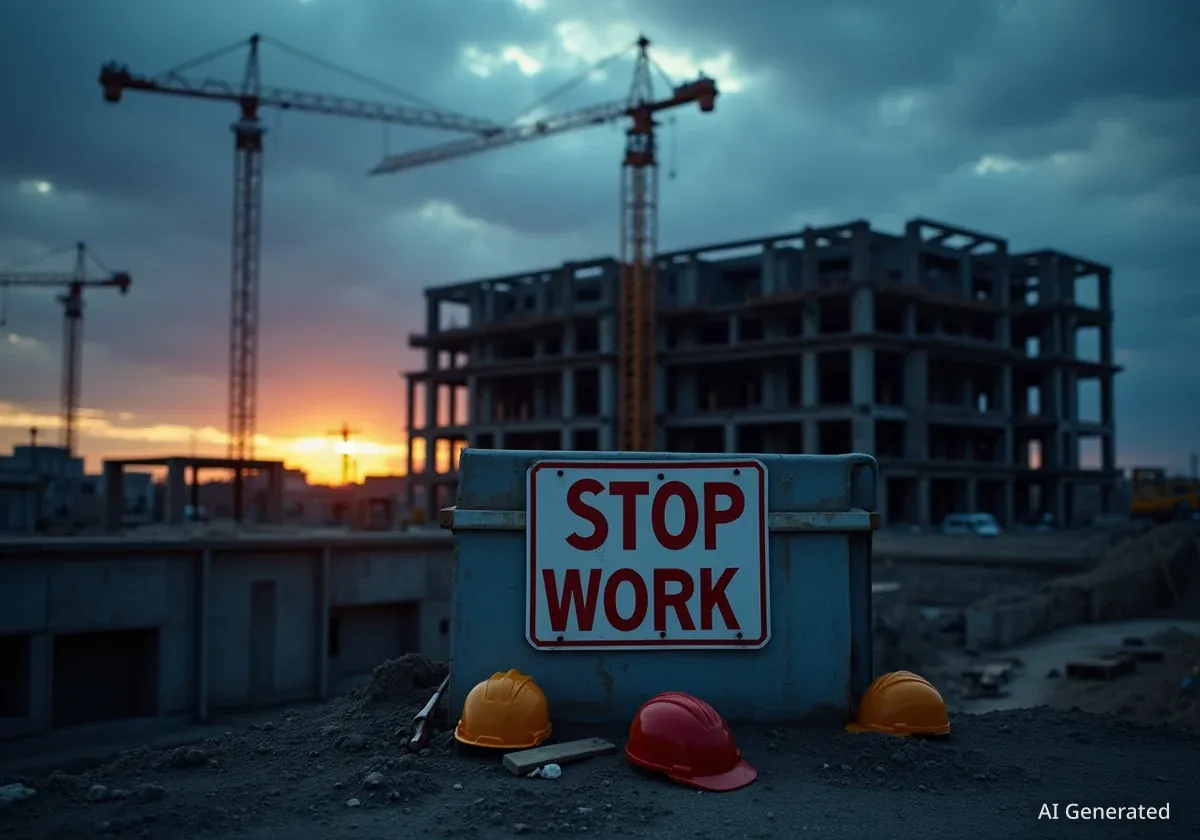As discussions of a potential government shutdown intensify, thousands of federal contractors and their employees face immediate financial uncertainty. The halt in government operations threatens to freeze payments and stall critical projects, sending disruptive ripples through key sectors of the economy, including the already stagnant construction industry.
The consequences extend far beyond Washington D.C., affecting small and large businesses that provide essential services to federal agencies. Unlike federal employees who have historically received back pay after shutdowns, contractors and their workers often have no such guarantee, placing their livelihoods in a precarious position.
The Immediate Threat to Federal Contractors
For companies that rely on government contracts, a shutdown triggers an immediate and severe cash flow crisis. When federal agencies close their doors, they issue stop-work orders and halt payments for services already rendered. This can be devastating for businesses, particularly small and medium-sized enterprises that may not have the capital reserves to cover payroll and operational costs without steady income.
Industry experts warn that these businesses are forced into making difficult decisions, including furloughing employees or implementing layoffs. The lack of a clear timeline for resolution creates an environment of instability, making it impossible for company leaders to plan for the future.
The Contractor's Dilemma
During a shutdown, contractors are caught in a difficult bind. They cannot bill the government for work that is not being performed due to a stop-work order. At the same time, they are responsible for their employees' salaries and benefits. This financial pressure can lead to significant debt or even business failure if the shutdown is prolonged.
The impact is felt directly by workers. An estimated hundreds of thousands of contractor employees face the risk of losing their paychecks. These are individuals working in IT, security, maintenance, and consulting roles who support the day-to-day functions of the federal government. Their financial hardship can quickly affect local economies as consumer spending declines.
Construction Sector Feels the Chill
The construction industry, already navigating its own set of economic challenges, is particularly vulnerable to the effects of a government shutdown. Many large-scale projects, from infrastructure upgrades to the construction of federal buildings, are funded by the government. A shutdown brings this work to an abrupt halt.
Furthermore, federal agencies that issue permits and conduct inspections, such as the Environmental Protection Agency (EPA) and the Army Corps of Engineers, would be shuttered. This creates a significant bottleneck, delaying even privately funded projects that require federal approval to proceed.
Stagnation in Hospitality
Recent data indicates that new hotel construction has remained flat, a sign of cautious investment in the hospitality sector. A government shutdown is expected to worsen this trend, as economic uncertainty typically leads to reduced business and leisure travel, lowering the demand for new hotel rooms.
Developers and investors become risk-averse during periods of economic instability. The prospect of a shutdown can cause lenders to tighten credit and developers to postpone new projects, waiting for a more predictable economic climate. This hesitation contributes to the stagnation seen in sectors like hotel construction and can lead to job losses for construction workers.
Broader Economic Consequences and Long-Term Damage
The economic damage from a government shutdown is not limited to the immediate halt in services and payments. Each day the government remains closed has a compounding effect on the national economy. Consumer confidence drops, financial markets react negatively, and the country's reputation as a stable place for investment can be tarnished.
For contractors, the long-term effects can be severe. Experienced and highly skilled employees may seek more stable employment in the private sector, creating a talent drain that is difficult to reverse. Some smaller firms may be forced to close permanently, reducing competition and innovation in the government contracting space.
Key Impacts of a Shutdown
- Frozen Payments: Federal contractors stop receiving payments, creating immediate cash flow problems.
- Project Delays: Government-funded and privately-funded construction projects are halted due to stop-work orders and lack of permit approvals.
- Job Insecurity: Hundreds of thousands of contractor employees face furloughs or layoffs without the guarantee of back pay.
- Economic Uncertainty: Reduced consumer confidence and investor caution slow down economic activity in related sectors like hospitality.
The disruption also affects the government's ability to function efficiently even after it reopens. A backlog of permits, payments, and projects creates delays that can last for months, continuing to slow economic progress long after the political impasse is resolved. This cycle of uncertainty makes it challenging for businesses to invest, expand, and hire, ultimately acting as a drag on the entire economy.





